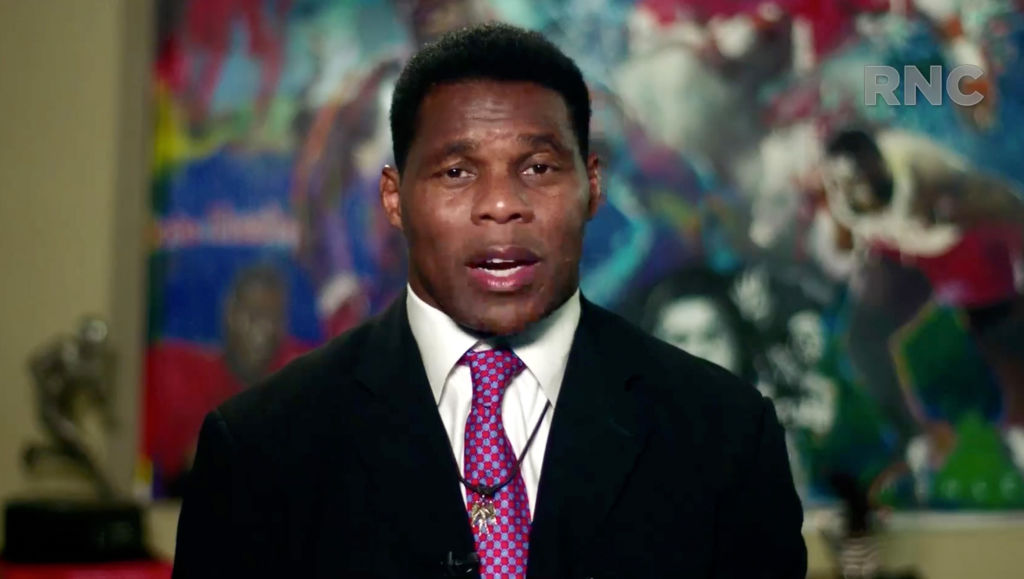
Source: Handout / Getty
As the aftereffects of the pandemic linger on and we are still navigating President Biden’s first 100 days in office, the American people to wait on the ratification of a possible third stimulus package. And similar to when last year’s $2 trillion stimulus package was passed, too, talks of reparations for slavery have surfaced again. However, while Black Democrats and White Democrats continue to remain divided on the issue, there is a voice that’s crossing the generally expected racial and political lines to make his position clear: proud Black Republican and longtime Trump supporter, Herschel Walker.
The college football great and retired NFL running back said that “Reparations teach separation” at a virtual Congressional hearing about House Resolution 40. Last Wednesday’s hearing was to discuss a bill to create “the Commission to Study and Develop Reparation Proposals for African-Americans,” an idea President Biden supports in theory but one he has yet to push forth for now. Nevertheless, Walker’s position was the time for that has come and gone. “Slavery ended over 130 years ago.”
(Courtesy of Forbes Breaking News)
“We use Black power to create white guilt,” he told the panel, evocative of the same school of thought as Terry Crews’ “Black Supremacy” tweet last June. But then Walker then proceeded to attempt to bolster his argument by using an ever so dubious source: The Good Book. “My approach is Biblical…how can I ask my Heavenly Father to forgive me if I can’t forgive my brother?… How can a father ask his son to spend prison time for a crime he committed? I feel it continues to let us know we’re still African American, rather than just American. Reparation or atonement is outside the teaching of Jesus Christ.”
Although the topic of legacy remuneration to descendants of slaves is not new, its discussion has gained immense traction in recent years, particularly among Black intellectuals like Glenn Loury, Coleman Hughes, and Ta-Nehisi Coates. In fact, Hughes and Coates both discussed H.R. 40 before Congress in 2019 and their opposing views on whether reparations should be paid. “Reparations, by definition, are only given to victims,” posited Hughes. “So the moment you give me reparations, you’ve made me into a victim without my consent.”
Coates’ argument for reparations, though, was a weighty one, questioning the pretext that only the direct victims of an offense or covenant have ever been the ones compensated, especially by these United States of America:
“…when asked about reparations, Senate Majority Leader Mitch McConnell offered a familiar reply: America should not be held liable for something that happened 150 years ago since none of us currently alive are responsible. This rebuttal proffers a strange theory of governance, that American accounts are somehow bound by the lifetime of its generations. But well into this century, the United States was still paying out pensions to the heirs of Civil War soldiers. We honor treaties that date back some 200 years, despite no one being alive who signed those treaties… We recognize our lineage as a generational trust, as inheritance, and the real dilemma posed by reparations is just that: a dilemma of inheritance. It is impossible to imagine America without the inheritance of slavery.”
Nevertheless, while the diversity of thought is what makes this country great, and we are all entitled to our positions, there are those who will read Walker’s following statements from last week and wonder why they sound like they may carry some strong undertones of coming from The Sunken Place: “America is the greatest country in the world for me, a melting pot of a lot of great races, a lot of great minds that have come together with different ideas to make Americans the greatest country on Earth… Many have died trying to get into America. No one is dying trying to get out.”
















